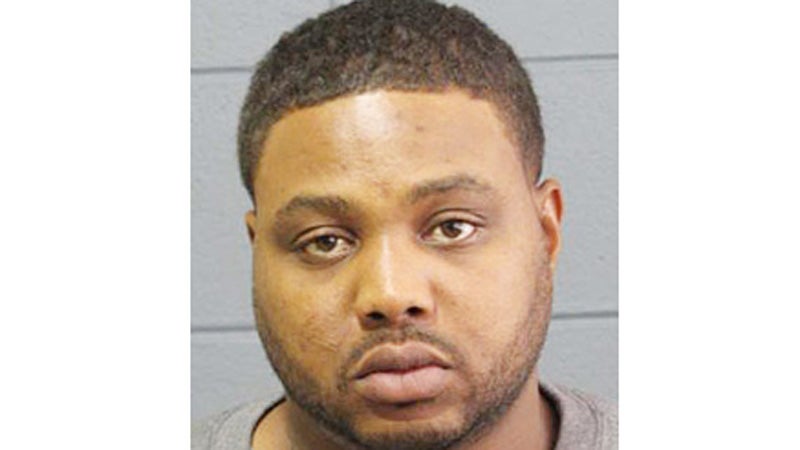No shelter, but a place to turn in St. John for abused women
Published 12:00 am Tuesday, July 1, 2008
By JIM MUSTIAN
Staff Reporter
LAPLACE – The Metropolitan Center for Women and Children (Metro), a non-profit organization that offers shelter and legal counsel to victims of domestic violence and sexual abuse in Greater New Orleans, has launched a new campaign to make residents of the River Parishes more aware of the services extended to them.
The organization, which was established in 1986, has not yet opened a residential facility in the River Parishes, but clients requesting shelter are transported to sites in Jefferson Parish or Baton Rouge where they can stay until they get back on their feet. Metro has, however, maintained a secret office in LaPlace since 1991 that offers a 24-hour crisis line, free legal counsel, tips on leaving and referrals to other community services.
Executive Director Dale Standifer said the idea of a shelter in LaPlace has always been a nonstarter as she predicts the location would be quickly compromised.
“You want to keep people from talking in a small town,” she said. “People say ‘well, why don’t you open a shelter in LaPlace?’ In about two days, everybody would know where it was and it wouldn’t be safe.”
According to a study by the U.S. Department of Justice, about 1.3 million women and 800,000 men are assaulted or physically abused each year in the United States. Citywide, Metro received more than 4,500 calls in 2007 alone. Many callers seek advice for someone else or ask questions regarding legal rights.
But the organization also housed more than 370 women and children last year. On average, clients tend to stay about one month, but many return several times before their situations are resolved.
After Hurricane Katrina, Metro’s clientele numbers remained consistent even as the population of New Orleans plummeted and estimated occurrences of domestic violence skyrocketed. Around that time, Standifer said, Metro took on clients and employees from the New Orleans YWCA, which did not reopen after the storm. Metro, which was originally known as the Metropolitan Battered Women’s Program, later changed its name to the “broader” Metropolitan Center for Women and Children.
But Metro’s numbers in the River Parishes have slowly declined in recent years despite population growth. Over the last year, the River Parishes office has received 238 calls to its crisis line. The exact amount of clients requesting shelter was not available, but Standifer figures it at “about one or two a month.”
Mauricio Aguilar, a newly hired Metro advocate from Brazil, attributes the diminishing numbers to poor advertisement and low community awareness.
“We haven’t been as aggressive as far as making our presence here,” Aguilar said in a recent interview. “It’s a very close-knit community, so it doesn’t always come out because it involves a second party,” he said referring to victims’ reluctance to report abuse.
Domestic violence victims are often afraid of going to the police, Standifer said, and men rarely report it anyway because of embarrassment.
“You have to remember it’s been a traumatic experience for these women, and for her to go and report to the police, that’s like them reliving the tragedy,” Aguilar said. “Most of the time, they’re just looking for shelter. There’re not looking to relive that experience so soon,” he said.
Standifer added that women often think they are the only ones in abusive relationships.
“People think poor, downtrodden. No, I have worked with some of the most beautiful, intelligent women,” she said.
“It can happen to anybody. I had an 85-year-old client one time. I said, ‘What did you wait so long for?’ And she said, ‘I just kept thinking he was going to change and the older he gets, the meaner he gets.’”
The National Institute of Justice Centers for Disease Control and Prevention estimates that women are seven to 14 times more likely to report domestic violence than men. Indeed, Standifer said women comprise 95 percent of Metro’s clientele.
Facing Challenges
Language barriers can also present a problem for victims of human trafficking, who may also have apprehensions related to immigration status.
In the River Parishes, hires like Aguilar, who speaks fluent Spanish and Portuguese, have become indispensable for Metro at a time of increasing population and changing dynamics, Standifer said.
“LaPlace is not what it used to be,” Aguilar said. “You have a whole different sense as far as ethnicity, for instance, you’ve got a lot of Latinos now.”
Standifer said Aguilar has already been useful in interpreting for survivors of human trafficking who have sought shelter with Metro.
Another challenge facing Metro in the River Parishes is a shortage of funds available for advertising. Each year, the organization enjoys thousands of fundraising dollars. But Standifer said she relies mostly on writing grants to keep things afloat. She cited United Way in St. John the Baptist and St. Charles Parish as large contributors.
Amenities at the shelters are largely provided through donations.
Standifer said she also plans to enlist the help of community leaders to inform River Parish residents of their options and Metro’s services.
“We’re trying to get the word particularly to the churches because people might tell their priest or their pastor, and they need to know where to refer them,” she said.
Anyone seeking advice and/or shelter from domestic or sexual abuse can contact the River Parishes Office at 985-651-7397 or the Metro New Orleans office at 504-837-5400.
Parties interested in volunteering or making a donation should call 504-837-5455 or visit www.metrobatteredwomen.com for more information.





